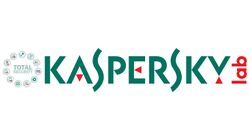Kaspersky
| "Cyber-terrorism" (Business) | |
|---|---|
 | |
| Headquarters | Moscow, Russia |
| Leader | Eugene Kaspersky |
| Type | private |
| Staff | 3,900 |
| The alleged - by the US and UK - offensive cybersecurity firm for Russia. | |
Kaspersky Lab is a Russian cybersecurity company known for their cybersecurity-solutions. Kaspersky has helped exposed multiple highly-prolific computer viruses, including Stuxnet. According to Gartner, Kaspersky Lab is currently the third largest vendor of consumer IT security software worldwide and the fifth largest vendor of Enterprise Endpoint Protection. In 2012 Kaspersky Lab was named a "Leader" in the Gartner Magic Quadrant for Endpoint Protection Platforms.[1]
Official narrative
Following a surge of Russophobia, oops, we mean "Russian influence" after the election of Donald Trump Kaspersky has been banned in several countries for state use, similar to Huawei and Chinese companies. The US banned them from state infrastructure in 2017, ties with the FSB have been offered as reasoning, nobody should look at an actual confirmed FBI-keylogger[2] in American vendor Norton, no, no, no. Forget that last line. That's all made up by a conspiracy theorist? Russia bad folks.
| "An independent security analyst reviews the Kaspersky-FSB link. |
Revelations
Stuxnet; In 2010, Kaspersky Lab worked with Microsoft to counter-act the Stuxnet worm, which had infected 14 industrial locations in Iran using four zero-day vulnerabilities in Microsoft Windows. According to IEEE Spectrum, the circumstances "strongly suggest" the worm was developed by the United States and Israel to damage centrifuges in Iran's nuclear-enrichment program. It was the first discovery of a major government-sponsored cyber-attack.[3]
Flame;
In May 2012, Kaspersky Lab identified the malware Flame, which a researcher described as potentially "the most sophisticated cyber weapon yet unleashed". According to the researchers in Kaspersky Lab, the malware had infected an estimated 1,000 to 5,000 machines worldwide. when asked by the United Nations International Telecommunications Union to investigate reports of a virus affecting Iranian Oil Ministry computers. Flame was an earlier variant of Stuxnet. Kaspersky never verified the source of the software, but it is suspected to have been developed by the National Security Agency (NSA) to transmit keystrokes, Skype calls and other data..[4]
Regin; In November 2014, Symantec and Kaspersky authored papers that contained the first disclosure of malicious software named Regin. According to Kaspersky, Regin is similar to QWERTY, a malware program discovered the next year. Regin was used to take remote control of a computer and is believed to have originated from Five Eyes.
Equation Group;
Spying software into the firmware of hard drives at banks, government agencies, nuclear researchers and military facilities, in countries that are frequent targets of US intelligence efforts suspected of being made by the NSA. It was reported to have been used in money laundering.[5]
Dugu;
In June 2015, Kaspersky reported that its own network had been infiltrated by government-sponsored malware. Evidence suggested the malware was created by the same developers as Duqu and Stuxnet, in order to get intelligence that would help them better avoid detection by Kaspersky in the future. Kaspersky called it Duqu 2.0[6]
Titanium;
Titanium is a very advanced backdoor malware APT, developed by PLATINUM, a cybercrime collective.
And dozens of others...
| "Is Kaspersky really an FSB-Front? |
Cyberwarfare
The US & EU do not seem happy and seemingly seem to complain about the "problem of Kaspersky finding our state-sponsored malware". Kaspersky actually relocated to Switzerland following US allegations, with the owner even appearing on the YouTube channel explaining why the accusations would be bullocks.
References
- ↑ Gartner, Magic Quadrant for Endpoint Protection Platforms, Peter Firstbrook, Neil MacDonald, John Girard, January 16, 2012
- ↑ https://en.wikipedia.org/wiki/Norton_AntiVirus#FBI_cooperation
- ↑ https://doi.org/10.1038/474142a
- ↑ http://timesofindia.indiatimes.com/tech/enterprise-it/security/Flame-virus-Five-facts-to-know/articleshow/13640158.cms
- ↑ https://www.ft.com/cms/s/0/4d4a8f9c-b668-11e4-95dc-00144feab7de.html#axzz46qMUFcNY
- ↑ https://www.wired.com/2015/06/kaspersky-finds-new-nation-state-attack-network/